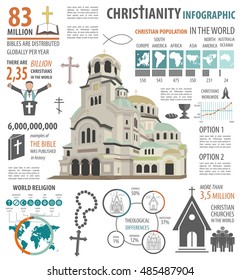Discover The Captivating History Of Catholic Institutions And Their Deep Result On Education-- Could Their Practices Offer Understandings For Future Discovering?
Discover The Captivating History Of Catholic Institutions And Their Deep Result On Education-- Could Their Practices Offer Understandings For Future Discovering?
Blog Article
Composed By-Carr Lanier
When you think about the background of education and learning, Catholic schools stick out for their ingrained practices and long-term impact. These organizations began as a means to instill confidence and values, however they have actually adjusted extremely over centuries. Today, they play an important role fit not just scholastic success however likewise moral integrity. What's appealing is how they have actually taken care of to flourish among changing cultural landscapes, questioning regarding their future importance and influence.
The Origins of Catholic Education And Learning: A Historical Perspective
Catholic education and learning traces its origins back over 1,500 years, when very early Christian neighborhoods recognized the requirement for structured understanding. You'll find that these areas aimed to hand down their confidence and values via education and learning.
Middle School Private Christian schools Near Me Traverse City and basilica institutions ended up being centers of learning, nurturing both spiritual and intellectual development. As you dive deeper, you'll see that the educational program frequently consisted of ideology, faith, and the liberal arts, developed to develop well-rounded people.
Gradually, the Church established more official establishments, making certain that education remained easily accessible to all. The dedication to mentor moral values and fostering a feeling of neighborhood has actually persisted via the centuries, forming the instructional landscape and influencing countless lives worldwide.
This long-lasting legacy remains to inspire Catholic education and learning today.
The Advancement of Catholic Colleges With Social Contexts
As cultures progressed, so did the role of Catholic colleges, adapting to the cultural contexts in which they existed. In the very early years, these institutions focused mostly on religious direction, however as areas expanded, they began to include neighborhood languages, customs, and instructional needs.
You 'd observe that Catholic institutions often ended up being centers for social communication, fostering a feeling of belonging amongst students from numerous backgrounds. In lots of areas, they addressed social issues, such as poverty and discrimination, by offering available education for all.
As you explore different societies, you'll see how Catholic institutions have actually changed their educational program and mentor methods, reflecting the worths and difficulties of their settings while remaining true to their fundamental mission of faith and scholastic quality.
The Modern Function and Impact of Catholic Schools in Culture
In today's world, Catholic colleges play an essential function in shaping not just the academic landscape, but additionally the broader neighborhood.
Recommended Web-site 'll locate that these institutions stress values like regard, concern, and social justice, promoting well-shaped people who contribute positively to society. By focusing on scholastic quality and moral development, Catholic colleges prepare pupils for future obstacles, nurturing essential reasoning and leadership abilities.
They frequently serve diverse populaces, connecting voids in access to top quality education. Furthermore, you could observe their commitment to service, motivating students to engage in area outreach and volunteer work.
This mix of education and moral support makes Catholic schools a substantial force, cultivating accountable people that can impact their communities for the better.
Conclusion
In conclusion, Catholic institutions have a rich history that's formed their enduring effect on culture. You have actually seen just how they've adjusted to different cultural contexts while keeping a commitment to faith, values, and academic quality. Today, they remain to play an important function in cultivating neighborhood, promoting social justice, and nurturing liable citizens. As you reflect on their legacy, it's clear that Catholic colleges remain an effective pressure for favorable modification worldwide.
